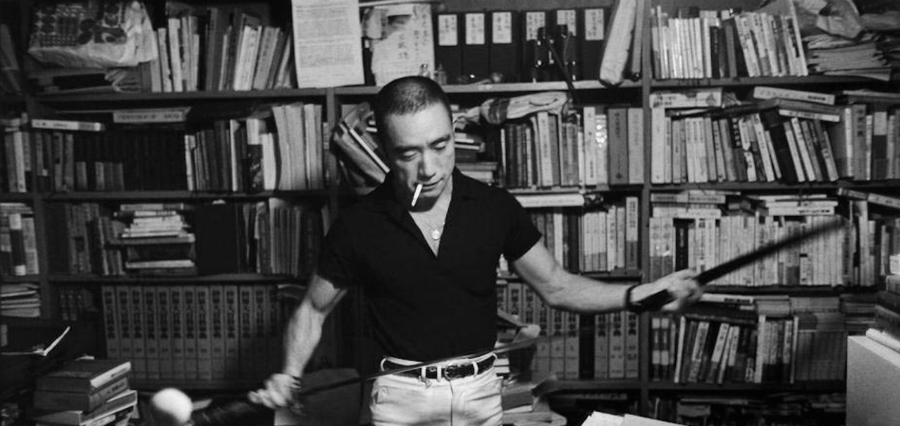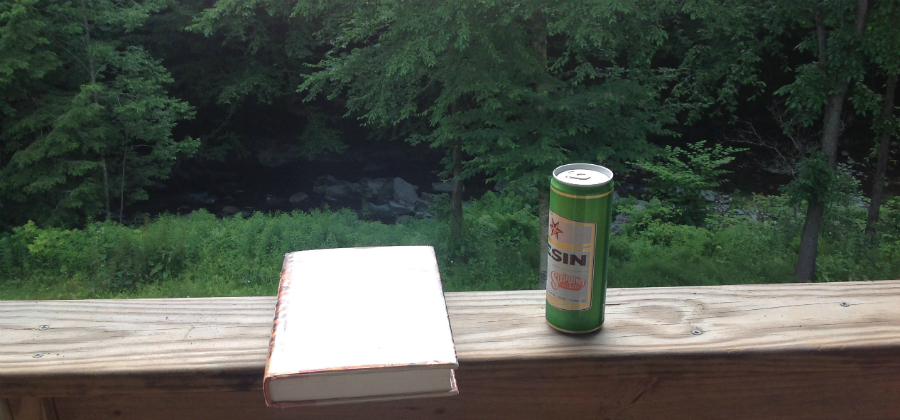2019 Reading List: Notes From Atlantis
2020-02-23 16:36:36.983118

The pace of history has accelerated something fierce in the past two years. As ever, my library and my reading chair exist in opposition to this tidal wave of noise. (Some days, it even works.) Despite my pretensions, though, the list this year is undeniably political -- although it's more about the kayfabe than the marks, I am still ashamed by my monomania. Just the same, these are fucking superb books, all of them.
Treasure Islands, Nicholas Shaxson. Subtitled "Tax Havens And The Men Who Stole The World," Shaxson's best book is a masterpiece of concise explanation. I have shelves full of hardcovers on these arcane subjects, and this is by far the best of them. It's really a globalized refinement of his earlier book on the corruption of the African oil market & the NGO development mafia, "Poisoned Wells," and he then went on to write "The Finance Curse," which is more of a manifesto polemic. "Treasure Islands," then, exists in the sweet spot between rigorous argumentation and moral outrage. Every chapter is a devastating blow. It also includes the clearest rundown available in English on what 'the Eurodollar' actually means.
Venice's Secret Service, Ioanna Iordanou. Having slogged through far more academic titles than usual in the past two years, Iordanou's short, brilliant book was exceptional in every sense. The amount of background context she brings to bear is essential to her success; capably grounded in organizational analysis, intelligence history, and of course, early modern Europe. This is also a triumph of original archival research, animating some colorful & cinematic episodes from the history of espionage. But this is much more than a well-executed historical curiosity: this is one of the best single books on the practice & logistics of intelligence work I've read so far.
Chameleo, Robert Guffey. Many of the books here are dry, packed with citations, and written for an inner circle. "Chameleo" is absolutely nothing like that. It is profane, entertaining, and moves like a novel, and I would recommend this strange, wonderful journey to anyone & everyone. It's also an impressive bit of actual journalism that delves into a flagrantly illegal SAIC operation on US soil. Along the way, it touches on most of the really interesting third rails of American conspiracy theory. You will be left slightly better informed and vastly more paranoid. Go get a copy now.
All Is Clouded By Desire, Alan Block. The field of organized crime studies is better for the tireless, grumpy work ethic of Mr. Block, and most of his works are mandatory classics. (Indeed, just last year, I was recommending his "Poisoning For Profit: The Mafia and Toxic Waste in America.") "All Is Clouded By Desire" is perhaps his least accessible, most valuable book. It is a study of the career of Bruce Rappaport, a globe-trotting, CIA-adjacent financial fixer who helped create our modern world. Alan Block, improbably, managed to acquire decades of Rappaport's notes and records. When it comes to the actual nuts and bolts of international money laundering, this is simply The Bible, indispensable and irreplaceable.
Operation Gladio, Paul L. Williams. Ambitiously subtitled "The Unholy Alliance between the Vatican, the CIA, and the Mafia," Mr. Williams manages to deliver the goods over the course of this fast-moving and illuminating account. He is of course hugely indebted to the original legwork of Daniele Ganser, but the narrower focus here makes for a more convincing, less sprawling case. There have also been a great many revelations, confessions and connected dots since Ganser's 2001 dissertation, and nearly all of them get incorporated and examined here.
The Ego Tunnel, Thomas Metzinger. As a sworn enemy of neurorealism, I feel obligated to keep up with the opposition. Metzinger's book was a valuable overview that tears across disciplines and orthodoxies, focused on the question of how perception generates not just reality, but identity. What I found most remarkable was how little new ground has been broken in this field since the 90's -- and in terms of metaphors and models, since the 70's. Still, the writing is lean and clean, and this is one of the finest single books on this subject I've found.
Supermob, Gus Russo. When it comes to organized crime in America, Mr. Russo has been on the beat for decades. His 2001 monolith "The Outfit" is perhaps the best book available on the origins and impact of Chicago's various mafias, a story that shaped American history nationwide. But with "Supermob," Russo takes on an even more successful and controversial outfit: Jewish organized crime. This story spans from the ethnic ghettos of Chicago to the luxury wonderlands of Las Vegas and, especially, Los Angeles. Whereas the Italian mafia mostly fell into disrepute and internecine murder, the Jewish mafia successfully went legit, taking over media and finance, and creating king-makers like the Pritzker family, who were essential to the selection and rise of Barack Obama. This is the story of the gangsters who won, and we live in their world now.
Nervous States, William Davies. If that creep Malcolm Gladwell were even half as smart as he believes himself to be, he would be writing books like this. "Nervous States" is overflowing with ideas and fascinating anecdotes on every page, all of it grappling with the problem of actually governing the tribalized Global Village that McLuhan tried to warn us about. The paperback edition is subtitled "How Feeling Took Over The World," which is more palatable but less accurate than the original, "Democracy and The Decline of Reason." Mr. Davis is a liberal humanist, and a born optimist besides, so his conclusions are perhaps the weakest part of the book, but that's a small price to pay.
Days of Rage, Bryan Burrough. This was a dynamite slice of history, covering the last major outbreak of American political violence during the 1970s. Appropriately focused on the FBI's responses, Burrough details the dawn of our modern police state, where almost every "radical" political movement consists almost entirely of Federal agents, Federal informants and Federal "assets" -- the latter being the most exotic & interesting species. Burrough is an astute analyst and a gifted writer. I also recommend his earlier work, "The Big Rich," a colorful examination of early oil fortunes and utter insanity that money made possible.
America's Great Game, Hugh Wilford. Mr. Wilford is one of the best adversarial historians of the CIA. I have previously recommended his essential "The Mighty Wurlitzer," an entertaining and exacting look at Langley's controlled opposition campaigns. "America's Great Game" is a similar chronicle of great expectations and catastrophic failures, and it fleshes out a portrait of some major players who have received little attention elsewhere. I found this extremely helpful in terms of understanding many of the more baffling foreign policy decisions that the US committed to in the Middle East. It is also, much like Burton Hersh's "The Old Boys," an outstanding work of cultural anthropology.
CHAOS, Tom O'Neill and Dan Piepenbring. Another ambitious saga with a loaded subtitle, "Charles Manson, The CIA, and The Secret History of the Sixties" is nothing like the Williams book on Gladio. O'Neill fails, utterly, to deliver the goods. However, that was probably the point. He is far from a trustworthy narrator; full of self-serving asides and naked contempt for the intelligence of his readers. Documentary fixer & noted fabulist Errol Morris also lurks around the margins here. The most interesting leads get dropped fast, the most astounding revelations receive little commentary or explanation, and overall this does nothing but further muddy the waters of Laurel Canyon and the nationwide killing spree that was Operation CHAOS. Still, it's an important read. O'Neill is either carrying water for the perps he's ostensibly exposing (much like Barbara Honegger or John DeCamp or Peter Levenda) or he's begging you to read between the lines of what he couldn't put into print. Probably a little of both; we've all gotta serve somebody, after all.
Gold Warriors, by Sterling & Peggy Seagrave. I read this when it was first published, but I didn't have the context or background to really parse it. I'm very grateful I revisited this book, because it is bonkers as fuck, an unbelievable narrative that mostly checks out. The Seagraves are old school journalists with a deep background in Asian politics and history, and their story here is meticulously observed. Better yet, they're blunt and upfront about when and where they're simply speculating. This being an expose about a massive covert operation with global implications, there is of course no shortage of gaps. So it goes.

Based on this list, you could safely assume my office has become a stereotypical wall of post-it notes and photographs connected by strings. In fact, most of my reading in 2019 was about agriculture. What follows is some short notes about the best of them. First of all, "Building Soils for Better Crops" (Magdoff & Van Es) has been near my kitchen table for almost three years now, a perennially useful reference.
I am also constantly cracking open "Small-Scale Livestock Farming" (Ekarius) and "The Art and Science of Grazing" (Flack), both valuable acquisitions that have become more valuable over time through conversations with farmers locally & far afield. For a straightforward introductory reference, "Storey's Guide to Raising Beef Cattle" is hard to beat, and "Temple Grandin's Guide to Working With Farm Animals" is a perfect compliment. (I have two other titles in the "Storey's Guide" series and they're equally great.)
Vermont permaculture wizard Ben Falk's "The Resilient Homestead" is a working autobiography of sorts, packed to the brim with practical advice and visionary ideas. It is also a flat-out beautiful book, both in terms of the photography and the humble, poetic bent of Falk's writing. I have greatly enjoyed "Farming The Woods" (Mudge & Gabriel) which is an important compliment to the "Edible Forest Gardens" books, focused on hand-on, small-scale projects and troubleshooting early installations.
Finally, James McSweeney's "Community-Scale Compost Systems" is a masterpiece of a textbook, containing all you would need to set up and maintain successful operations, all grounded in dirty, smelly and hard-won advice from farmers, municipal experts and entrepreneurs. Well worth the cover price.